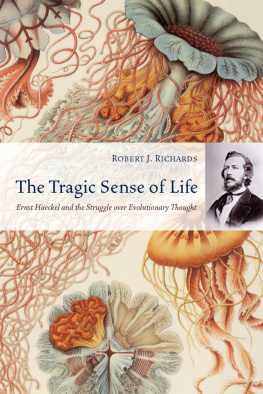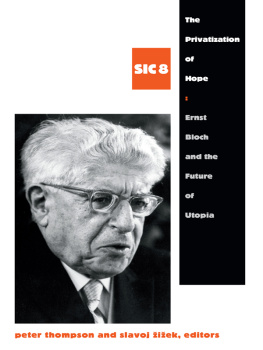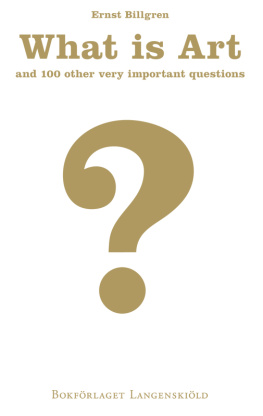Edzard Ernst - Dont Believe What You Think
Here you can read online Edzard Ernst - Dont Believe What You Think full text of the book (entire story) in english for free. Download pdf and epub, get meaning, cover and reviews about this ebook. year: 2020, publisher: Andrews UK Ltd., genre: Religion. Description of the work, (preface) as well as reviews are available. Best literature library LitArk.com created for fans of good reading and offers a wide selection of genres:
Romance novel
Science fiction
Adventure
Detective
Science
History
Home and family
Prose
Art
Politics
Computer
Non-fiction
Religion
Business
Children
Humor
Choose a favorite category and find really read worthwhile books. Enjoy immersion in the world of imagination, feel the emotions of the characters or learn something new for yourself, make an fascinating discovery.

- Book:Dont Believe What You Think
- Author:
- Publisher:Andrews UK Ltd.
- Genre:
- Year:2020
- Rating:5 / 5
- Favourites:Add to favourites
- Your mark:
- 100
- 1
- 2
- 3
- 4
- 5
Dont Believe What You Think: summary, description and annotation
We offer to read an annotation, description, summary or preface (depends on what the author of the book "Dont Believe What You Think" wrote himself). If you haven't found the necessary information about the book — write in the comments, we will try to find it.
Edzard Ernst: author's other books
Who wrote Dont Believe What You Think? Find out the surname, the name of the author of the book and a list of all author's works by series.
Dont Believe What You Think — read online for free the complete book (whole text) full work
Below is the text of the book, divided by pages. System saving the place of the last page read, allows you to conveniently read the book "Dont Believe What You Think" online for free, without having to search again every time where you left off. Put a bookmark, and you can go to the page where you finished reading at any time.
Font size:
Interval:
Bookmark:
essays in political
& cultural criticism
imprint-academic.com
Published in 2020 by
Imprint Academic Ltd
PO Box 200, Exeter
EX5 5YX, United Kingdom
imprint-academic.com
Digital edition converted and distributed by
Andrews UK Limited
www.andrewsuk.com
Copyright 2020 Edzard Ernst
The right of Edzard Ernst to be identified as the author of this work has been asserted in accordance with the Copyright, Designs and Patents Act 1988.
All rights reserved. No part of this publication (except for the quotation of brief passages for the purposes of criticism and discussion) may be reproduced, stored in a retrieval system, or transmitted, in any form or by any means without the prior written permission of the publisher, nor be otherwise circulated in any form of binding or cover other than that in which it is published and without a similar condition being imposed on the subsequent purchaser. Any person who does so may be liable to criminal prosecution and civil claims for damages.
The views and opinions expressed herein belong to the author and do not necessarily reflect those of Imprint Academic or Andrews UK Limited.
To Danielle
There are many ways to arrive at an irrational belief. We can simply make a mistake by misjudging a piece of evidence or drawing an unwarranted conclusion, or we can fail to detect a false or unsubstantiated claim. Despite the efforts of regulatory agencies, the consumer marketplace is filled with charlatans, fake experts, and modern-day snake oil salespeople, and the responsibility to navigate this maze of good and bad information falls on the consumer. Caveat emptor. When it comes to health and medicine, the consequences of a bad decision can be severe, and yet, for a number of reasons, the consumer cannot be blamed for being confused.
Making consumer medical decisions involves a number of special challenges. For example, for all but the simplest problems, when we are sick or injured, we are forced to rely on an authority. In todays world, medicine is a highly technical enterprise, and the average person has a primitive understanding of how their body works. We are only slightly better off than people living in a pre-scientific agenot because our physicians have limited knowledge of health and disease but because we do. Because medical science is esoteric and impenetrable for most of us. When we depend on a medical authority, we assume their knowledge is based in some kind of reality. We dont always know the basis of their claim to authoritythe amount and quality of training theyve hadbut, if we accept their prognosis and remedy, we grant them a kind of authority. Being able to find the good authorities and avoid the false prophets is a substantial challenge.
In addition, although medical science has evidence on its side, doctors often recommend procedures that patients are reluctant to undergo. Surgery and chemotherapy are painful and can be disfiguring. Physicians would not offer these methods if there were equally effective and less onerous options, but often this is not the case. The only methods that work involve substantial discomfort. If an alternative medical procedurewhat Edzard Ernst calls a SCAM: so-called alternative medicineis more gentle and palatable, some consumers will be drawn to it. In addition, when there is no effective treatment or when the best available evidence-based treatment is incompletely effective, SCAMs run in to fill the void. In the early days of the HIV/AIDS crisis, a number of SCAM therapies were promoted for the treatment of HIV. Now that effective, evidence-based therapies have arrived, the alternative treatments for this disease have largely fallen away.
As Ernst suggests, once we have adopted a belief, cognitive biases kick in to help us sustain our position in the face of conflicting evidence. It always feels better to be right than to be wrong, and once we have committed to an idea, wed prefer it be right. This book demonstrates how those biases can operate to maintain false ideas about health and medicineoften with serious consequences for the individual.
Another powerful tool for the maintenance of belief is simple rationalisation. When confronted with conflicting information X, we pivot to, Yes, but what about Y? Unfortunately, in the case of SCAMs, there is a long list of Yscounter-arguments and justifications that have been promoted in support of often ineffective and potentially harmful treatments. This is where Ernsts many years of research on SCAM treatments shines. In the following pages, he takes on the many justifications for the use of SCAMs and examines each claim under the cool light of evidence. The result is an extremely valuable guide to all manner of SCAM treatment. In addition, Ernst recounts his personal experiences as a researcher in an often contentious field. In todays world of rampant misinformation, Dont Believe What You Think is an entertaining and essential guide to the often bewildering world of SCAM therapies.
Stuart Vyse
Stonington, Connecticut
Thank you for showing an interest in this bookbut please be warned, it might make emotions run high and could have the potential to upset some people.
So-called alternative medicine (SCAM) is a complex and controversial subject. Many people pretend to be experts in SCAM, but few know even the basic facts about it. Many consumers talk about SCAM, but few can be bothered to look behind the smokescreen of misleading claims. Many feel emotionally attached to SCAM, but few manage to think rationally about it. Many religiously believe in SCAM, but few show concern about the evidence. Many are desperate for help, but few seem to mind getting ripped off.
I was once one of those who thought that most SCAMs might be helpful. I have used SCAM as a patient, employed it as a clinician, researched it as a scientist, and written about it as an author. My last bookentitled SCAM: So-Called Alternative Medicine was an attempt to explain this subject in terms that laypeople would understand. My new book builds on the previous one by focusing on commonly held beliefs about SCAM.
Enthusiasts of SCAM tend to hope for fewer side effects, symptom relief, a cure for their condition, improvements in quality of life, and protection from illness. Such high expectations are usually based on misinformation, often even on outright lies. The disappointing truth is that not many SCAMs are truly effective in treating or preventing disease, and that none is totally harmless. In fact, the dangers of SCAM are manifold and potentially serious:
- harm due to adverse effects such as toxicity of a herbal remedy, stroke after chiropractic manipulation, pneumothorax after acupuncture (see section 3.2);
- harm caused by bogus diagnostic techniques (see section 4.4);
- harm of using materials from endangered species (see section 3.15);
- harm through incompetent advice by SCAM providers (see section 4.5);
- harm due to using SCAM instead of an effective therapy for serious conditions (see section 4.5);
- harm due to the high costs of SCAM (see section 3.8);
- harm due to SCAM undermining evidence-based medicine (see section 5.4);
- harm caused by inhibiting medical progress and research (see section 5.1).
In this book, I address these issues in detail and explain how consumers get manipulated into believing things that are evidently wrong. Using plenty of real-life examples, I outline how the constant flow of misinformation, coupled with motivated ignorance, motivated reasoning, and cognitive bias can produce a form of wishful thinking that is detached from reality. In the interest of my readers health, I aim to correct some of these false beliefs and fallacious thought processes.
Font size:
Interval:
Bookmark:
Similar books «Dont Believe What You Think»
Look at similar books to Dont Believe What You Think. We have selected literature similar in name and meaning in the hope of providing readers with more options to find new, interesting, not yet read works.
Discussion, reviews of the book Dont Believe What You Think and just readers' own opinions. Leave your comments, write what you think about the work, its meaning or the main characters. Specify what exactly you liked and what you didn't like, and why you think so.








